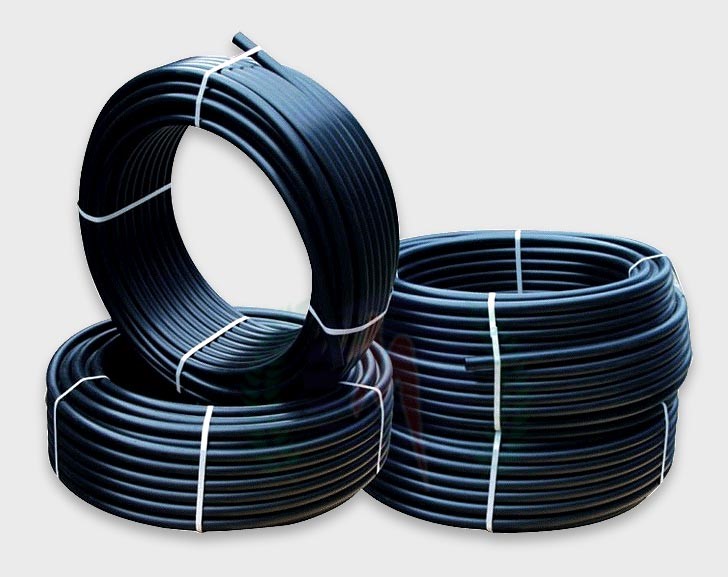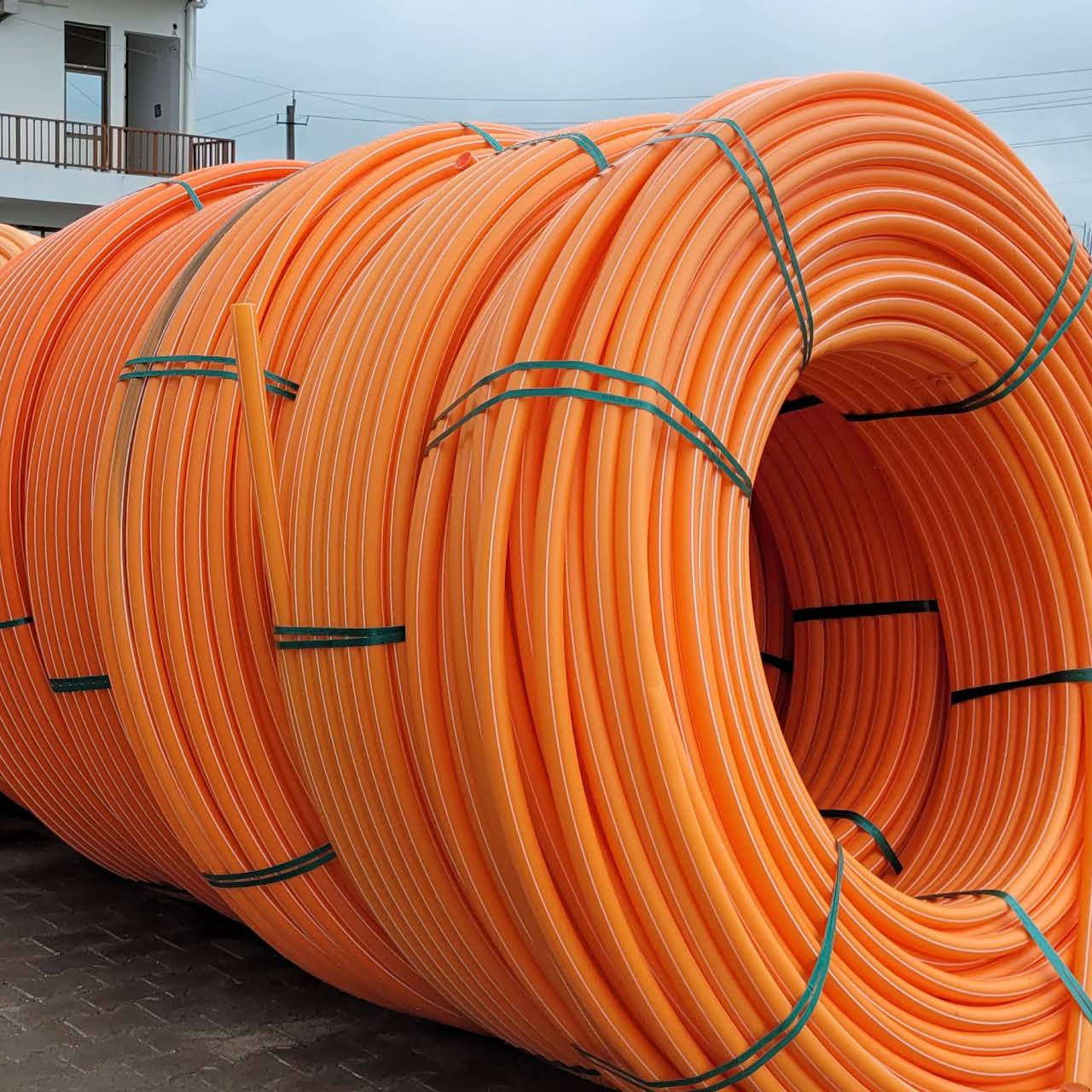Pipe Manufacturing Midland TX: Process Explained
Recognizing the Secret Advantages of HDPE Pipe for Water and Wastewater Management
The usage of HDPE pipeline in water and wastewater administration provides various advantages that warrant factor to consider. Its phenomenal durability and lengthy life-span make it a recommended option for many projects. In addition, the product's resistance to corrosion and chemical damages improves its reliability in numerous settings. The benefits extend beyond simply long life and resistance. American Plastics HDPE Pipe for Oilfield. Discovering its cost-effectiveness and ecological impact discloses also much more engaging reasons for its widespread adoption in modern facilities
Outstanding Sturdiness and Durability

HDPE pipeline sticks out for its outstanding sturdiness and longevity, making it a recommended choice in water monitoring systems. Built from high-density polyethylene, these pipes can withstand significant stress and stress and anxiety, guaranteeing dependable efficiency over time. Their durable nature enables them to endure extreme ecological conditions, consisting of temperature fluctuations and soil movements, which can cause other materials to stop working.
The life-span of HDPE pipelines frequently surpasses half a century, supplying a cost-effective service for communities and industries alike. Additionally, the material's light-weight residential or commercial properties simplify setup, lowering labor costs and durations. This durability lessens the demand for constant repair work or substitutes, additionally enhancing its economic allure.
In water monitoring applications, the integrity of HDPE pipelines means fewer interruptions and enhanced solution continuity, making them important to sustainable framework development. The combination of toughness and long life strengthens HDPE's role as a cornerstone in reliable water management remedies.

Resistance to Rust and Chemical Damages
While lots of products catch deterioration and chemical damage gradually, HDPE pipelines exhibit amazing resistance, making them optimal for different water management applications. This strength comes from the molecular structure of high-density polyethylene, which is inherently non-reactive and does not wear away like steels or break down from exposure to rough chemicals. Therefore, HDPE is extremely efficient in environments with hostile compounds, such as wastewater systems that might have acids, bases, and natural solvents.
Furthermore, HDPE pipes can endure environmental variables such as soil level of acidity and saline problems, even more boosting their suitability for varied applications (hdpe pipe suppliers Midland TX). Their capacity to preserve architectural stability over time minimizes the risk of leakages and failings, which is critical in making certain the safety and security and dependability of water distribution and wastewater management systems. Subsequently, the resistance to corrosion and chemical damages substantially adds to the total efficiency and durability of HDPE piping solutions
Cost-Effectiveness and Financial Benefits
When considering the monetary implications of water monitoring systems, the cost-effectiveness of HDPE pipes ends up being evident. These pipelines use reduced installation and upkeep costs contrasted to conventional products like metal or concrete. Their light-weight nature streamlines transportation and installation, leading to minimized labor expenses. In addition, HDPE pipelines show a lengthy lifespan, typically surpassing half a century, which converts to less substitutes and long-lasting financial savings.
The resistance of HDPE to corrosion and chemical damage minimizes the requirement for expensive repair services and substitutes. The pipelines additionally sustain effective water flow, decreasing energy costs connected with pumping systems. By alleviating leaks and water loss, HDPE pipes contribute to significant economic benefits for municipalities and industries alike. Overall, the first financial investment in HDPE piping can produce considerable financial check here returns over the life-span of the water monitoring system, making it a prudent option for sustainable framework growth.
Ecological Sustainability and Decreased Impact

Versatility and Adaptability in Setup
As a result of their one-of-a-kind properties, HDPE pipelines provide impressive adaptability and flexibility in installment, making them suitable for a variety of applications. Their light-weight nature permits less complicated handling and transportation, lowering labor costs and installment time. HDPE pipes can be bent and formed to fit different surfaces and project demands, which is specifically helpful in challenging atmospheres.
In addition, their resistance to deterioration and chemical damages permits setup in varied settings without the requirement for specialized safety finishings. The capacity to fuse joints creates a constant, leak-free system, boosting the overall stability and dependability of the installment. HDPE's flexibility likewise suits ground activity, decreasing the danger of damages in locations prone to moving dirt. On the whole, these characteristics make HDPE pipes not only flexible yet additionally a preferred choice for water and wastewater administration systems.
Often Asked Inquiries
Just How Does HDPE Pipeline Compare to PVC in Water Management Applications?
HDPE pipe provides remarkable adaptability, resistance to deterioration, and resilience compared to PVC. Its lighter weight helps with much easier installment, while its lengthy life-span lowers substitute prices, making HDPE a recommended selection in water monitoring applications.
What Is the Life-span of HDPE Piping Under Typical Problems?
Under typical conditions, HDPE pipelines can have a lifespan ranging from 50 to 100 years. Their sturdiness and resistance to corrosion add to their long-term efficiency in numerous applications, making them a reliable choice for infrastructure.
Are HDPE Pipes Recyclable After Their Service Life?
Yes, HDPE pipelines are recyclable after their life span. American Plastics HDPE Pipe for Oilfield. They can be processed and repurposed into brand-new items, considerably decreasing ecological influence and advertising sustainability within the industry, making them an environmentally friendly option for piping solutions
What Is the Installment Process for HDPE Pipes?
The setup process for HDPE pipelines includes site prep work, trenching, pipe blend or mechanical joining, backfilling, and stress testing. Proper methods guarantee a sturdy and effective system for transporting water and wastewater properly.
Can HDPE Pipeline Be Made Use Of for Both Drinkable and Non-Potable Water Equipments?
Yes, HDPE pipes can be made use of for both potable and non-potable water supply. Their versatility, longevity, and resistance to corrosion make them ideal for various applications, making sure secure and effective transportation of water in different contexts.